Hope you enjoyed The Spark’s new theme music, with a huge thanks to my brother Anthony Postman for the original composition and all the mixing. This month’s interview is with psychological thriller author Jessica Payne. I have a whole new batch of amazing reading recommendations for you, some top writing tips—and some very exciting updates on my moseying!
📖 Author interview with Jessica Payne
Jessica Payne is a psychological thriller author who has probably spent a little too much time studying the dark intricacies of the human mind. An expert coffee drinker, she loves to go on long runs to manage the resulting caffeine jolt. Jessica lives in the Pacific Northwest with her husband, daughter, and their many (many!) cats and dogs. Her novels include Make Me Disappear, The Lucky One, The Good Doctor, and Never Trust the Husband. (Note: book links go to Jessica’s local bookstore.)
What inspires you?
I always wonder if any author truly knows the answer to this. For me, there is no one answer. I get ideas from everywhere, and sometimes, seemingly from nowhere—the idea just pops into my head. In my debut, Make Me Disappear, all I knew was that there was this nurse in Seattle trapped in a bad relationship and that she wanted to have herself kidnapped to escape. Then, in my research, I discovered extreme kidnapping—people treat it like a sport!
My latest book, Never Trust the Husband, was all inspired by running alone before sunrise in Texas when I briefly lived there—people leave the lights on in their homes, keep their curtains drawn back. Whether I wanted to or not, I'd get glimpses inside their houses, see them drinking coffee and reading the newspaper. It sparked an idea for a character who ran through the darkness looking in people's houses on purpose—why would she do something like that? What did she want? Thus, a plot was born.
Other ideas have come from podcasts, dreams, overheard conversations...I think a lot of it is about being open to creativity. Letting your mind wander and speculate.
Do you have a writing routine?
No. Yes. Kind of? The reality is that my routine is constantly changing—each book demands something different, and also, I'm responsible for a small human. As she's in school, on summer break, or sick for a day, my routine fluctuates around her. But you know what, I love that I can work from home and be around for all these moments, and I wouldn't have it any other way.
My weekday routine looks similar to this:
5am - alarm goes off. I ignore it.
5:20am - my cat gets annoyed and stomps all over me until I pull myself from the bed.
5:21am - COFFEE.
5:40am - I'm at my desk, checking emails, social media, chugging coffee, etc.
6am - working on whatever needs attention most. This might be writing the next chapter, combing through revisions from my agent, or writing up pitches for the next book.
7am - kiddo is awake and I get her ready for school.
9am-10:30am - workout (running, yoga, gym time, not all on the same day), shower, eat.
11am - back at the desk, again working on writing or revising for the next book.
I work until about 3pm, taking breaks to stretch, walk the dogs, make tea, etc.
Once I've picked my daughter up from school, I'm usually done working for the day. Occasionally, if I have a pressing matter, I'll work more at night, after she's in bed, but that's fairly rare. I'm of the opinion it's important to intake creativity as much as I put it out—so reading books, watching shows, going on walks with my dogs to let ideas percolate—that's all important, too!
Writing’s biggest secret is…
…not giving up. So many people expect their first book to land them an agent and a huge book deal, and they're devastated when it doesn't work out that way. I get it—I, too, thought everyone would love my first book. But I got zero requests from agents, and now I realize that it lacked plot and character development. It takes time and hard work to get good at writing, and that's normal and okay. It took me four books to get an agent and a publishing deal. For some of my friends, it took five or six, and then for some it took ONE. Every writer has their own journey. You just have to keep going. Also, your path will likely look different than your friends', and again, that's okay and normal!
My worst writing moment
When I realized I needed to rewrite a book that was on deadline. That felt really icky—realizing it wasn't good enough, realizing it wasn't ready to go to my editor, but instead, I needed to ask for an extension and rewrite a big part of it. But it also taught me to trust my gut when something felt off, and it's kept me from making that same mistake.
My best writing moment
Getting a book deal. When you get that call or text from your agent—discovering an editor loved your book and fought to acquire it and that manuscript you've been working on for the last 6 months or year is going to become a REAL book. Publishing has so many ups and downs, and this is one of my favorite moments. Another best writing moment would be my first book event. It was held at Browsers Bookshop in Olympia, Washington (it's adorable, go there!). So many friends—and strangers!—came to support me and my debut. It was just incredible.
What are you reading right now?
I'm currently reading an Advance Review Copy (an ARC) of You Are Fatally Invited, Ande Pliego's debut. She and I are writing friends, and I got to see an early version of it. Now, on the verge of her publication date, it's such a privilege to hold a physical copy and get to see how that raw manuscript transformed. It's such a good book—I highly recommend pre-ordering it!
Book recommendation
Shoot, I suppose I already recommended a book! Well, here's another: It Had to be You by Eliza Jane Brazier. Think Mr. & Mrs. Smith but...different. Overseas and hired killers hired to kill one another while trying not to fall in love with one another. Part romcom (seriously hilarious dialogue) and part thriller (so tense!), this is one of my favorite books this year.
Where can we find you?
On my website jessicapayne.net or on Instagram as @jessicapayne.writer. But I'm pretty much everywhere online, including here on Substack.
📚 Book recommendations for ravenous readers
Told through the points of view of three sisters a year after the death of their fourth sister, Blue Sisters by Coco Mellors is excruciatingly stark and tender. Set in the present day, the novel travels between Los Angeles, New York, London, and Paris. Last month, I was struck by the figurative language of Kaliane Bradley’s The Ministry of Time. Blue Sisters is also full of original similes and metaphors—there was one about a hungover Lucky crawling up her sister’s front stoop like a Slinky going up stairs. (The only drawback of listening to books is that it’s tough to find quotes if you don’t note the time stamp when they’re spoken.) Lucky spends a lot of time hung over, so here’s a description of her in that state.
“Her body no longer felt like a pillowcase that had been filled with rocks and broken glass, then put in the tumble dryer, but she didn’t feel great.”
Holly Graziano’s career as a game designer is apparent in her debut, The Husbands. Lauren returns home one day to find an unknown man in her house who thinks he’s her husband. His belief is backed up by everything around them—wedding photos, text messages, and so on. He goes into the attic and—bzzzz—another one comes down the ladder. Repeat. It’s like Sliding Doors on steroids—or rather than Choose Your Own Adventure, it’s You Don’t Get to Choose Your Own Husband. While the story is entertaining, between the lines it makes you reflect on big topics like fate (or lack thereof), “what if?,” happiness, pet peeves (like separate-toe shoes), and commitment. Oh, and there’s a simile with a capybara which I won’t attempt to find (neither the quote nor the capybara).
Hidden: The Lies She Told recounts growing up in Liverpool, mixed-race, with an absent father and an abusive mother. Lisa Nicol’s memoir details her harrowing “…daily life in this so-called United Kingdom, which felt anything but united.” The big, hinted-at reveal about her ancestry, discovered through a DNA test bought for her by a friend, happened in her adult life and appears late in the book. Finally, Lisa says:
“For the first time in my life, when I look in the mirror, I truly see myself. The cloud of uncertainly that once shrouded my reflection has been lifted.”
✏️ Resources for wonderful writers
My top tip for October is to submit to writing contests and magazines that offer feedback. For example, West Trade Review accepts fiction up to 5,000 words and creative nonfiction up to 6,000 words. Per reading period, you may “…choose to receive a quick decision about your work for $10, and may also receive a quick decision about your work along with personalized feedback from the editors for $25 (1.5-2 pages). The response time for both expedited and personalized options is approximately 2 weeks.” Receiving insightful feedback from experienced editors takes the sting out of rejection and boosts chances to win future contests and get published.
History Through Fiction offered feedback on pieces entered into its Short Story Contest, but doesn’t seem to offer it for regular submissions. Two people separately provided scores from 1-10 (“completely inadequate”—harsh—to “brilliant”) on:
Overall theme/message - Consider how effectively the central message is conveyed through characters and setting, and its relevance to both the historical context and today's world.
Historical Relevance - Focus on the accuracy of events, settings, and cultural norms of the time period, ensuring they align with documented history and contribute to the story's authenticity.
Character/Plot/Setting - Evaluate characters for historical accuracy and depth. Assess the plot for engaging, credible events. Ensure the setting reflects the era's authentic details and atmosphere.
Narration and Point of View - Consider if the narrator's perspective is consistent and authentic to the time period. Assess how the point of view influences the story's credibility and engagement.
Overall Impact/Quality - Consider the story's emotional pull, authenticity of setting, character depth, and how well it blends fact with fiction to engage and enlighten readers.
Speaking of submissions and contents, I’ve discovered a wonderful format for stories. I was looking up one of the actors who reads Matt Haig’s Echo Boy, Thomas Judd, and came across this 2022 interview with him on Books Forward. He explained:
“I was spotted performing at Liars’ League, which is a live event in London where actors narrate new short stories by writers.”
I’ve submitted twice to the Liars, to no avail—yet—and am writing a piece specifically for the next event, themed Wreaths & Wraiths, in December. Fingers crossed! Even if you’re not near London or even in the UK, you can still submit. All videos are up on the Liars’ League YouTube channel.
👣 Updates on my moseying
A lot has happened since mid-September. On 23 September, I did the London Writers’ Salon “100 Days of Writing” workshop, which is helping me track progress and keep focus. On my 100 days sheet, I’m circling in green the days that I’m working on my short story collection and orange are non-short-story-collection things.
Becca Syme’s Better-Faster Academy and having a coaching session with Becca herself put me back on the traditional publishing track as my first priority. I’ve now written all nine chapters and I’ve set 1 November as my date to start querying my short story collection with literary agents.
My story, “Things My Dad Told Me,” getting shortlisted for The Hope Prize has been a game-changer for me. It’s the first story in my work-in-progress short story collection. The Hope Prize anthology, Tomorrow There Will Be Sun, will be published by Simon & Schuster Australia on 4 December and is now available for pre-orders: paperback in Australia and it’ll be on Kindle too but it might take some VPN (virtual private network) jiggery-pokery to access it. The cover is GORGEOUS and I’m still stunned how the title fits in with the title of my short story collection, Staring into the Sun. All Tomorrow royalties will go to Australia’s mental health charity Beyond Blue. I might have an opportunity to contribute to the charity’s marketing by sharing my story about being bereaved by my mother’s suicide.
As if all this weren’t surreal enough, one of my stories has been shortlisted for the Oxford Flash Fiction Prize and will be included in the anthology. The prize’s theme is “transformation,” in conjunction with the Bodleian Libraries’ “Kafka: Making of an Icon” exhibition. On 26 October, the event “Words of Wonder” will include a launch and eight author readings—including yours truly. So if you’re in the area, please head over to Oxford University’s Weston Library at 2pm!
Submissions stats — tracked on Chill Subs 📊
🏆 6 accepted
⏱️ 10 pending
🙅♀️ 6 withdrawn (accepted elsewhere)
🚫 41 rejected
🟰 63 total
Most book links go to my Bookshop.org page, where sales are win-win-win, benefiting the authors, local bookstores, and my own writing—unlike using A…you-know-who!
If you enjoy The Spark, please share it, rate, and review on your favorite podcast platform or go to Substack where you can listen to the podcast and subscribe to the newsletter!


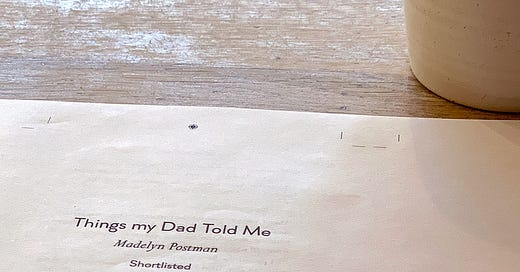
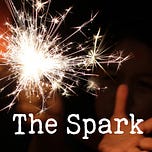


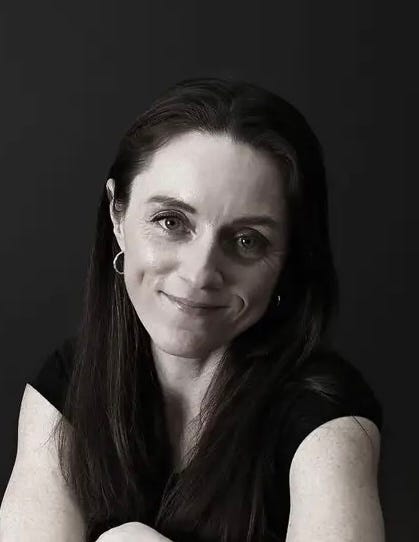




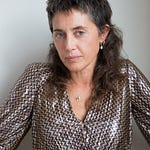
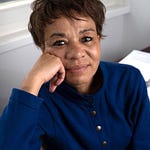
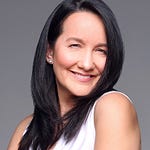

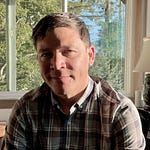
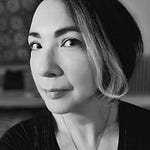
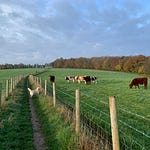
Share this post